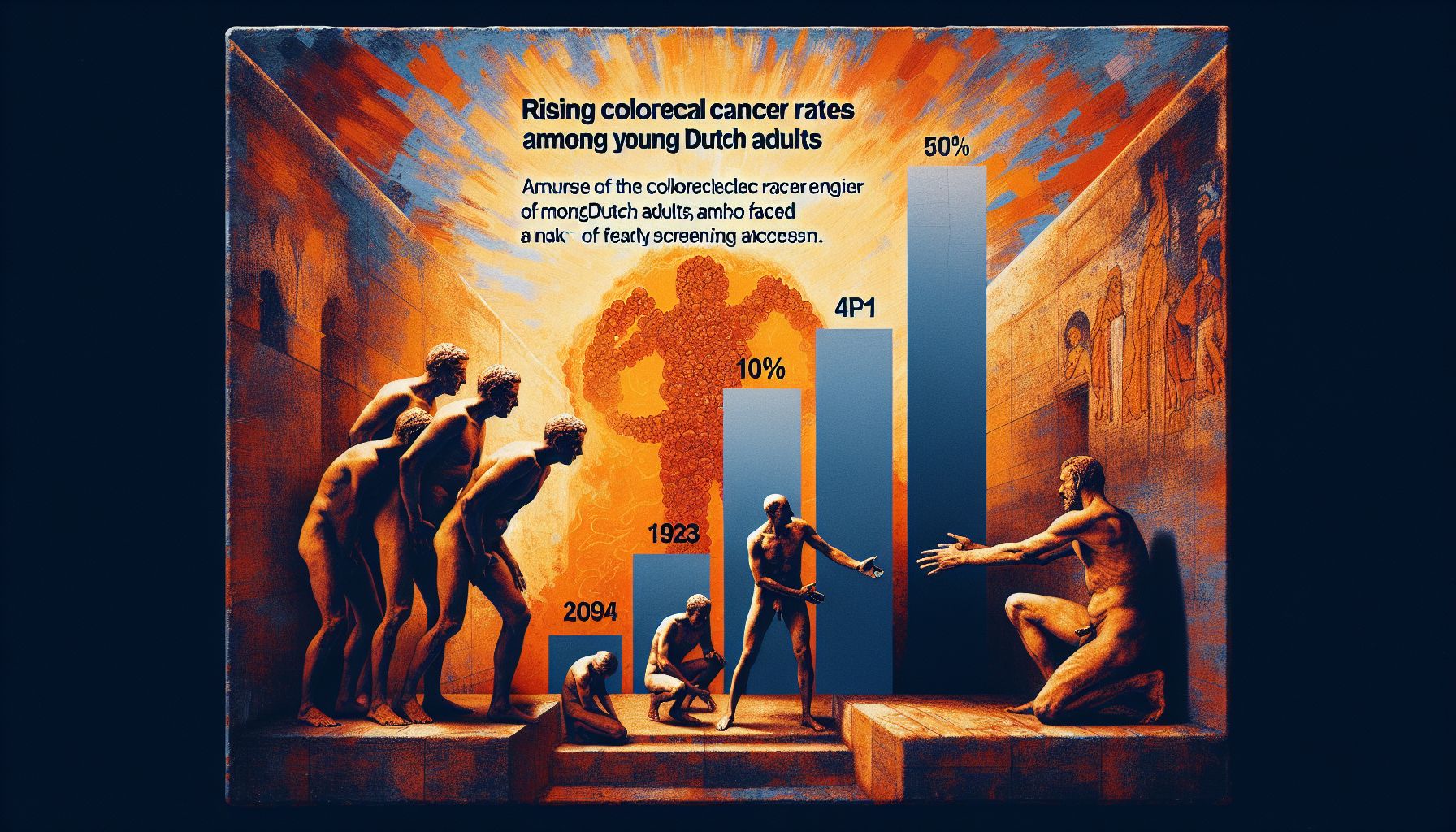Rising Colorectal Cancer Rates Among Young Dutch Adults Elicit Concern

Utrecht, Friday, 25 April 2025.
Colorectal cancer cases among Dutch individuals under 50 have surged nearly 50% from 1998 to 2023, posing increased psychosocial challenges due to lack of early screening access.
Alarming Trends in Young Adult Cases
The Netherlands Comprehensive Cancer Organisation (IKNL) reports that colorectal cancer cases among young Dutch adults have risen from 6.3 to 9.5 cases per 100,000 individuals aged 15-49 between 1998 and 2023 [1]. In absolute numbers, 654 Dutch people under 50 were diagnosed with colorectal cancer in 2023, with projections indicating this figure could reach 762 by 2035 [1]. This trend is particularly concerning as younger patients often face more severe psychosocial and physical consequences, including sexual dysfunction and financial instability, according to IKNL researcher Marloes Elferink [1].
Treatment Outcomes and Survival Rates
Recent research from the Netherlands Cancer Institute demonstrates some improvement in treatment outcomes. A study spanning 2001-2021 shows that overall survival rates for colorectal cancer patients with brain metastases improved significantly, with median survival increasing from 4.0 months (2001-2015) to 9.0 months (2016-2021) [2]. Patients receiving systemic therapy after diagnosis showed particularly promising results, with a median survival of 19.4 months compared to 4.7 months for those who did not receive such treatment [2].
Risk Factors and Prevention
International studies have identified several lifestyle and environmental risk factors contributing to this increase, including obesity, physical inactivity, and consumption of red and processed meats [1]. A recent study highlighted by DutchNews suggests that childhood exposure to E.coli toxins may also play a role in the rising cases among younger populations [4]. Currently, individuals under 50 are not included in the national colorectal cancer screening program, which poses challenges for early detection and intervention [1][4].

